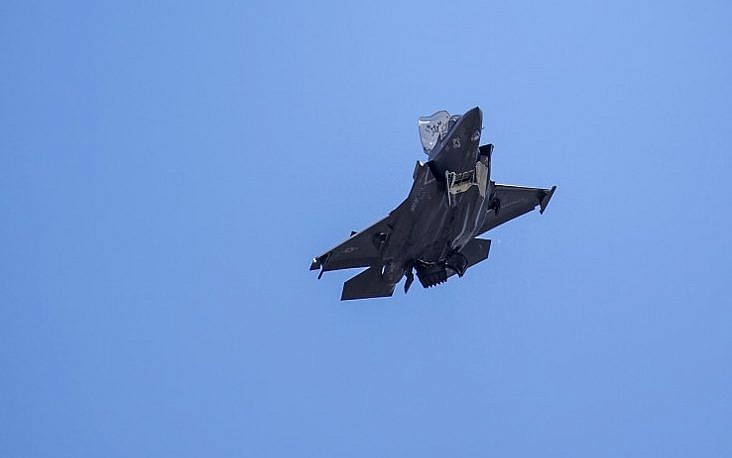
Defense minister and Mohammed Ahmad al-Bowardi say normalization deal will ‘strengthen opportunities for peace and stability in region’.
Defense Minister Benny Gantz spoke on the phone with his United Arab Emirates counterpart, Mohammed Ahmad al-Bowardi, for the first time, their offices said Tuesday.
According to a statement by the Emirates’ official news agency WAM, al-Bowardi, UAE minister of state for defense affairs, and Gantz expressed their hope that a proposed normalization treaty between the two countries would “strengthen the opportunities for peace and stability in the region,” as well as channels for communication and strong bilateral relations between the countries.
“We share important security interests. Cooperation will strengthen the stability of the region,” Gantz’s office said in a statement.
The conversation came a day after a similar conversation was held between the health ministers of Israel and the UAE as the sides gradually bolster ties following this month’s normalization deal announcement.
Health Minister Yuli Edelstein and his Emirati counterpart, Abdul Rahman Mohammed Al Owais, agreed to appoint representatives to lead ties on medical matters, a joint statement from both countries said.
But while calls between ministers have taken place, the new relationship has also faced hiccups, largely over the UAE’s effort to purchase F-35 advanced fighter jets from the US.
The sale is not believed to be part of the normalization agreement, but both Abu Dhabi and Washington have indicated that the UAE-Israel deal makes the purchase more likely to go through.
Prime Minister Benjamin Netanyahu has denied signing off on such a sale, which critics warn will damage Israel’s qualitative military edge in the region. But the premier’s outspoken opposition was reported to have deeply angered the UAE, which canceled a trilateral meeting with Israel and the US last week in a message of retaliation, according to Channel 13.
Earlier on Tuesday, Likud Minister Tzachi Hanegbi said Israel opposes the sale of “even one screw” of the F-35 fighter jet to any other country in the Middle East, including the United Arab Emirates.

Hanegbi and other Israeli officials have indicated that Jerusalem considers the UAE acquiring the F-35 — one of the most advanced operational aircraft in the world — to be a step too far. However, Mossad intelligence agency has reportedly been pushing for Israel to sell its own state-of-the-art weapons to Abu Dhabi for years, despite opposition from the Defense Ministry, which fears that the military technology may wind up in the hands of Iran or other enemy nations.
The United States is legally bound to maintain Israel’s military advantage in the Middle East, though this has not always prevented Washington from approving advanced arms sales to countries in the region.
Israel does not have a veto on American arms sales, but rather the US makes its decision based on Pentagon assessments of Israeli military power and how such deals could affect it.
(Times of Israel).